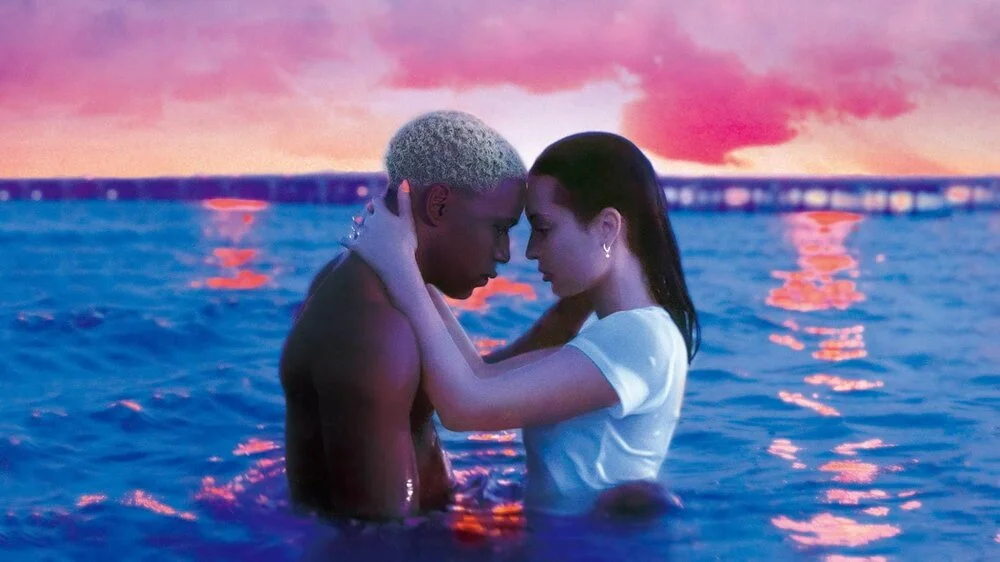
A Family is falling apart in Waves
by Michael Butler
Bright, ebullient colors quickly give way to dark, crushing emotions in Waves, a new drama directed and written by Trey Edward Shults. Waves is a riveting, poignant deconstruction of Black family life and takes audiences on an emotionally wrenching journey.
Kelvin Harrison Jr. plays Tyler, a gifted high school wrestler with a thriving social life in his Florida community. From the moment we enter his large, spacious two-story home, Tyler seems to have the perfect life. Taylor Russell plays Emily, Tyler’s quiet younger sister. Emmy Award winner Sterling K. Brown is Ronald, Tyler’s father with high standards for his children that seem at best, aspirational and at worst, devastating.
Shults succeeds in conveying the delicate dynamic between many Black parents and their children. Tyler and Ronald spend a great deal of time together, but very little if any of it is joyful. Tyler works out frequently to stay in shape as an athlete and is constantly pushed by Ronald to train harder. In addition to being an exemplary student athlete, Tyler also spends his spare time working for his perfectionist father, who pushes Tyler more than he realizes.
Waves excels in showing the emotional highs and lows that come with an endless pursuit of success. At one point in the film Ronald shares a jarring sentiment that sets the tone for the entire movie: “I don’t push you because I want to, I push you because I have to.”
The consistent push that comes from Ronald and other factors play a critical role in shaping Tyler’s worldview and value system. When there is no set measurement for what success looks like, madness can ensue in its pursuit. Waves dares viewers to reconcile the joy of high achievement with the powerlessness of seeking validation.
Waves doesn’t sugarcoat the anguish that comes with constantly reaching for goals without celebrating the ones that have already been attained. There’s a vulnerability in seeing the film’s characters sob, argue with one another and even seek redemption.
Waves succeeds in using a changing speed to reflect the pace of its characters’ lives. At some points the movie seems to move at lightspeed to showcase the blur of excitement that comes with youth. At other points, the film moves at a meticulously slow pace to underscore the contemplation that comes with maturity. Because of this, Waves feels like a film occurring in various acts or chapters, and the experience connects viewers to the characters involved even more.
There is a turning point in Waves where the story could have ended but didn’t. The continued character development that happened as a result of that showed the humanity of each character in a different light.
The cinematography and visual aesthetics of Waves mirror the broad scope of feelings its characters experience over the more than two hours of film time. Lush, sweeping shades of yellow and red cover the screen during happier times and dark, morose shades of blue make viewers feel the effects of what quickly becomes a complicated series of decisions that affect everyone in the movie.
Life happens in waves, and it’s up to us to find a way to deal with it.
